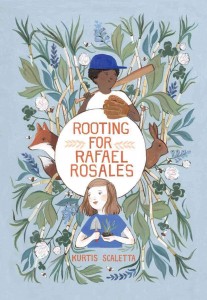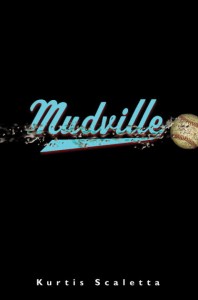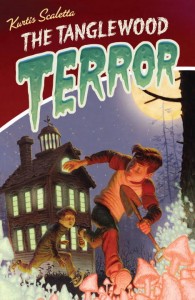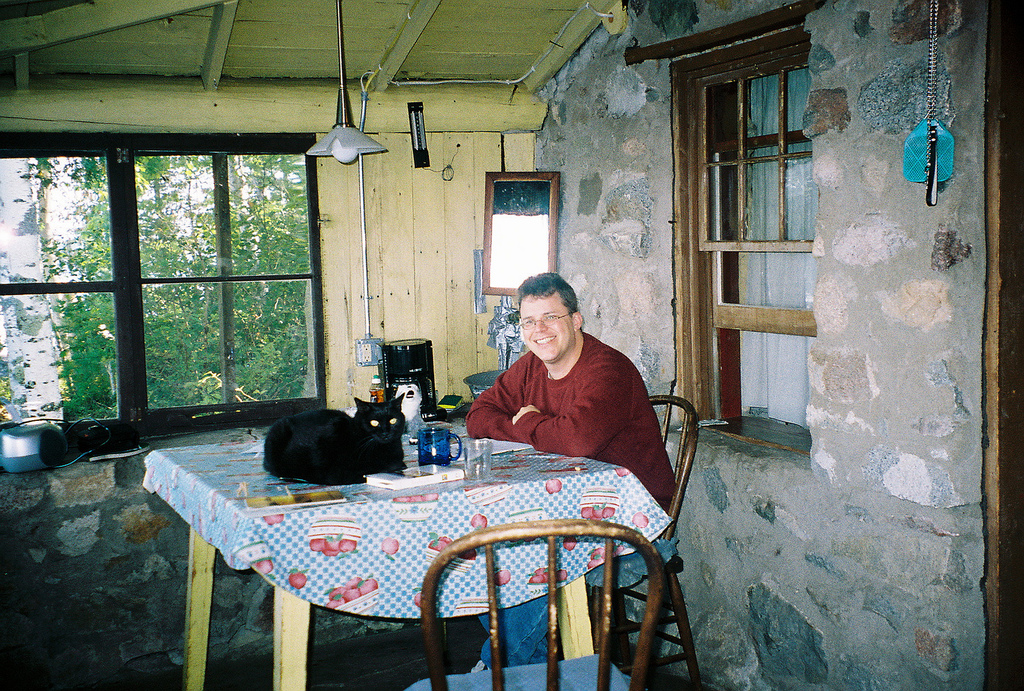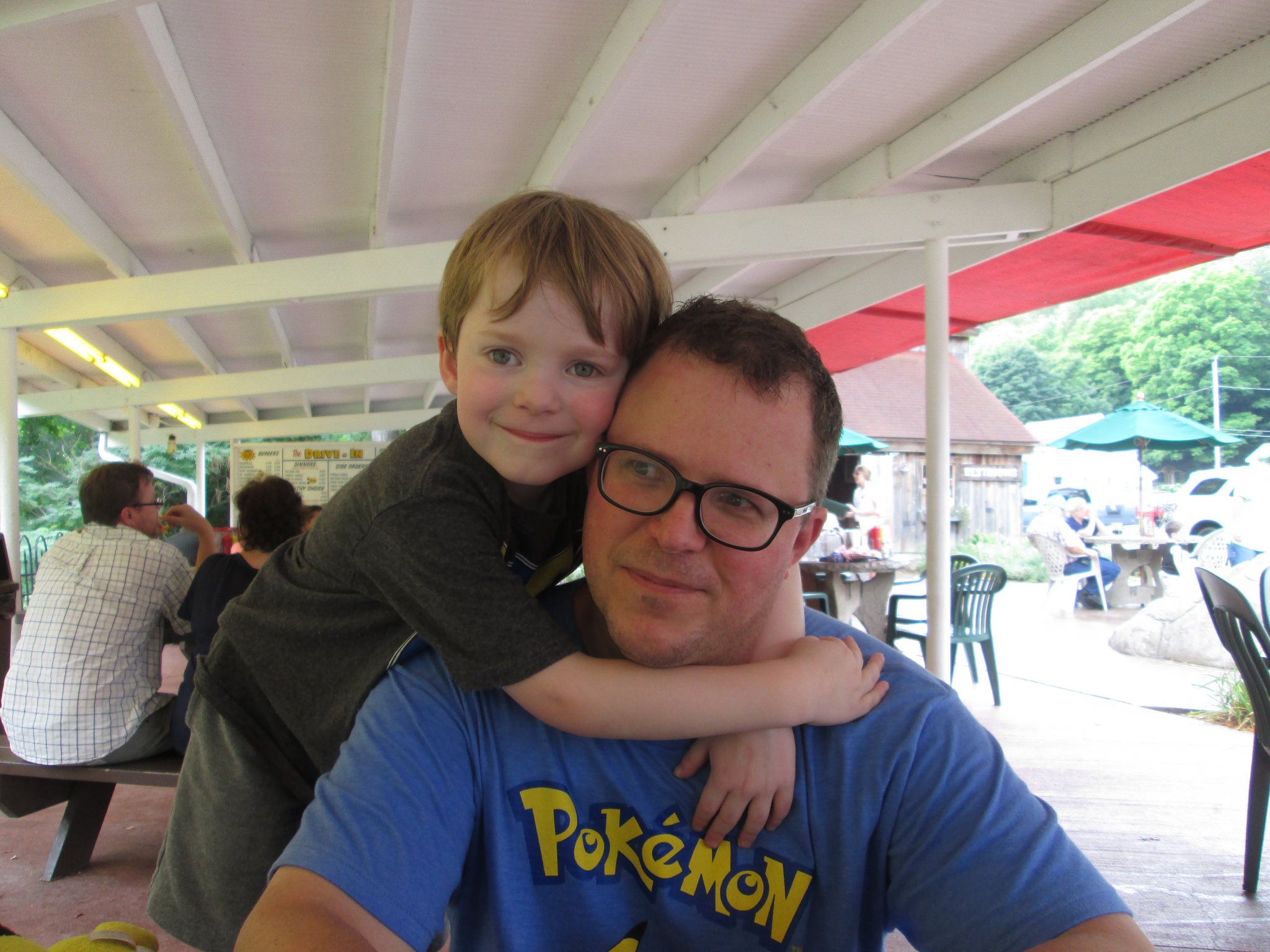Because of The Velveteen Rabbit (George H. Doran Company, 1922), a young boy became an engaged reader. And because a second-grade teacher cared, an award-winning author was born.
“I write middle-grade books because of how much I needed books when I was that age.”
Kurtis Scaletta grew up surrounded by books and models of others reading, so it was only natural he would take up reading as well. “We had loads of books,” says Scaletta. “One book I really remember is The Velveteen Rabbit, which wasn’t the first book I read by a long shot, but maybe the first book that made me cry, that felt weighty and important, that made me feel like I was a better person for having read it. And around that time, I decided writing stories was what I wanted to do. But one pivotal moment came in second grade when we had to write and illustrate our own books. My teacher took me aside to say mine was the best … she didn’t want to say it in front of the other kids. I was used to being kept after school because I was in some kind of trouble, so it was a huge thing to get some positive attention for a change.”
When Scaletta entered college, he did not need time to figure out his educational direction. In fact, in the course of a few years, he had earned several degrees including two master’s degrees—one in English and one in education. Amazingly, though, he did not become a published writer or even write for his work for several years. “My day job for the last 20 years has been in educational technology; first developing educational multimedia, then as a faculty consultant at the University of Minnesota, and now managing the online education program at the Loft Literary Center. At least the last one involves creative writing!”
Today, in addition to his “day job,” Scaletta is an accomplished, award-winning author. Known especially for his highly acclaimed break out novel, Mudville (Knopf Books for Young Readers, 2009) and his series of baseball-themed Topps League books (Harry N. Abrams), one would likely expect Scaletta to have spent his childhood and youth involved in sports. That would be false. “I was not a good athlete or even a big sports fan as a kid. I did play sandlot ball and played basketball for the YMCA clubs. Kind of funny that’s the sport I picked since I was the shortest kid in my class every year.”
As a military kid, Scaletta spent his childhood moving around a lot. But the rich experiences he gained provided details for his work. “My father was in the Air Force until I was about 13, and then joined the foreign service, so there was a lot of moving, including to other continents. I loved living in England as a kid, for the candy, excellent television (including kids programs!), and interesting history in the region. We lived in an area where both Roman and Paleolithic/Mesolithic sites (e.g., Stonehenge) were close by, which took hold of my imagination. Liberia was more challenging, but was the most interesting place to live.”
Scaletta’s first book debuted in 2009. It was met with high acclaim and received honors such as being shortlisted for the Mark Twain Readers Award. “I didn’t really appreciate how good Mudville did because like a lot of debut authors, I kind of thought all the good things would happen: bestseller list, movie deal, major awards. Then when a couple of other books came out I realized, hey, I did pretty good with the first one getting as much attention as it did!”
It was living in Liberia that inspired his second novel, Mamba Point (out of print). The book is full of autobiographical details with everything being true except for the snake. “Linus lives in the same apartment building and has the same day-to-day life as I did,” shares Scaletta. “When I lived in Liberia, even though the culture transition was hard, I knew it was something special and worth writing about.”
In Scaletta’s subsequent books such as The Tanglewood Terror (Knopf Books for Young Readers, 2011) and The Winter of the Robots (Knopf Books for Young Readers, 2013), he has included elements of mystery, fantasy, and humor. Yet, underlying everything is a vein of realism. Scaletta doesn’t shy away from the tough issues that concern young people today. That is especially apparent in his latest book, 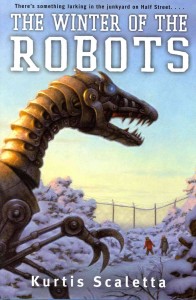 Rooting for Rafael Rosales (Albert Whitman and Company, 2017).
Rooting for Rafael Rosales (Albert Whitman and Company, 2017).
“I want my books to stick with readers for a while.”
“I’m more of a realist,” acknowledges Scaletta, “and those quieter things—family issues, kids growing up, kids worrying about the future—that’s really what drives me to write. When I grew up that stuff was the norm, and I still haven’t shaken the idea that it’s important that kids discover themselves through books, connecting with characters from emotions and experiences that are familiar, and by showing the character go through something, the reader can learn from it. And I feel like honesty is the best way through. I think I did that best with Maya in Rafael Rosales. She’s right about the bees, but she’s in a place where she can take a lot of things for granted. And the kind of things she wants to do mean real sacrifices. I didn’t want it to be easy.”
Sometimes it is easy for writers to become preachers trying to get messages across to their readers. Not Scaletta. “I don’t have model heroes and avoid moral certainties,” he says. “I don’t want books to tell kids what to believe, but I want to show kids being reflective, and coming to decisions carefully and with empathy. I think that’s one element in all of them. Even the way Jim rationalizes all of his crimes in Winter of the Robots shows a kid who’s grappling with what the right thing to do is. And I want my books to stick with readers for a while. Even if they don’t think, ‘Hey, this book was a hoot,’ maybe weeks later they’re still thinking about it.”
With five novels and six chapter books to his credit, Scaletta has a growing, eager fan base. So what can readers look forward to seeing from him next? “Nothing soon,” admits Scaletta, “ I cannot write as much as I used to because of my son, and my pace has slowed a lot as a writer, but I do what I can on lunch breaks and weekends and after he goes to bed, though by that time I’m usually too beat to do anything. However, I’m working on something new but am not quite prepared to go public with it … I’ll just say mysteriously that it’s about the power of art and has a dual narrative, like Rafael Rosales.”
Extra! Extra! Read all about it!
“Everybody in my family was an avid reader. My mother read a book a day, and there were shelves packed with her paperbacks and stacks of books on every surface. On top of that, both of my parents would read two or three newspapers cover to cover every day and a number of magazines. My brothers and I would often pass books around that we liked. It was one of the few things we could share that didn’t lead to fights.”
“I love the Topps books. I wrote them so fast I didn’t appreciate them until I read them to my son; it was like reading them for the first time. I don’t know how I did it. The plotting is really good, great characters, good humor. They were work for hire and belong to Topps and they decided six was enough, but I’d love to do something else like that series again.”
“The best way to reach out to me is email, kurtis@kurtisscaletta.com. I used to have a PO box and loved getting the snail mail, but since I dropped that, email is the only reliable way to contact me. I answer all emails and letters except for ones that are asking for help with book reports.”

